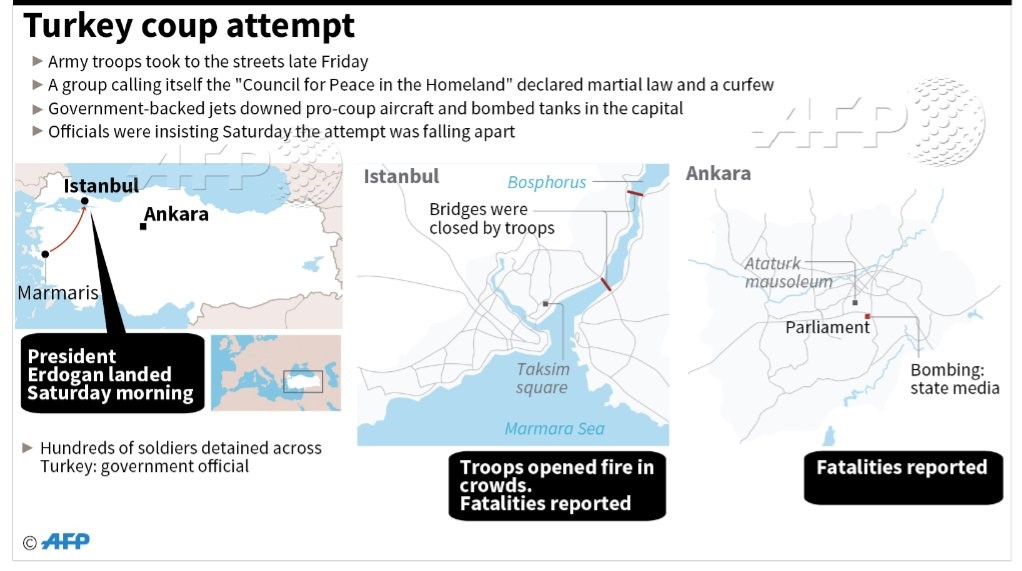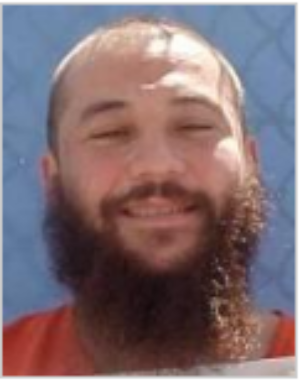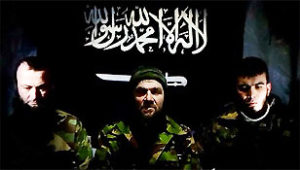From the Washington Post For a shorter summary of which the Pentagon is noted to be rejecting and for which Russia denies exists, go here.


It calls for joint bombing operations, a command-and-control headquarters and other synchronized efforts. U.S. and Russian officials with expertise in intelligence, targeting and air operations will “work together to defeat” the extremist groups, the eight-page paper states. Such a partnership would undercut months of U.S. criticism of Russia’s military intervention in Syria. And it would put the U.S. alongside Syrian President Bashar Assad’s chief international backer, despite years of American demands for Assad to leave power.
Russia would be getting what it has wanted since intervening in Syria in late September: An international alliance of sorts. Washington previously rebuffed Moscow’s requests for military cooperation, accusing the Russians of using anti-terrorism objectives as a pretext for protecting Assad’s position. The U.S. also says Syria’s military and Russia’s air force have repeatedly violated truces with moderate rebel groups backed by the U.S. or its allies. More from ABC

Terms of Reference for the Joint Implementation Group
These terms of reference describe organization, functions, and procedures for
the Joint Implementation Group (JIG.)
The purpose of the JIG is to enable expanded coordination between the United
States and the Russian Federation beyond the established safety of flight
procedures. The participants, through the JIG, are to work together to defeat
Jabhat al Nusra and Daesh within the context of strengthening the Cessation of
Hostilities (CoH) and supporting the political transition process outlined in
UNSCR 2254. The United States and the Russian Federation, hereafter referred
to as “the participants”, intend to act in accordance with these terms of
reference. Unless otherwise stated, the participants will conduct their efforts
through the JIG.
The participants are to implement the provisions of the “Approach for Practical
Russian-American Efforts against Daesh and Jabhat al Nusra and Strengthening
the Cessation of Hostilities.”
The participants are to conduct all efforts consistent with the intent to take all
reasonable measures to eliminate non-combatant casualties.
The participants also commit to all efforts, including operations subject to
cooperation or otherwise addressed by these terms of reference, occurring in
compliance with international humanitarian law and the terms of the CoH.
1. JIG Location, Organization and Composition
a. Location. The JIG is to be located in the vicinity of Amman, Jordan.
Participants intend to negotiate their own support requirements with the host
nation.
b. Organization. The participants intend to maintain separate, national
headquarters in which they will install systems to exchange information with their
respective headquarters responsible for tactical actions against Nusra and
Daesh. The participants, through the JIG, intend to establish a coordination
center at which they are to exchange intelligence and operational information.
d. Composition. Participants intend to staff the JIG in numbers sufficient to
accomplish the JIG’s functions. The participants intend to match, as practicable,
the ranks of their counterparts.
i. Staffing. The participants intend to staff the JIG with subject matter
experts and professionals with expertise in intelligence, targeting and air
operations. Intelligence expertise includes knowledge of the disposition,
operations, and tactics of the relevant armed actors in Syria. Targeting
expertise requires familiarity with national procedures to choose, confirm
and prosecute deliberate targets.
ii. Language and Translation. The participants intend to provide
information to the JIG in their native language. Participants are
responsible for translating material received. Participants intend to staff
the JIG with a sufficient number of bilingual personnel familiar with military
intelligence and operational terminology, in order to enable the real-time
translation of conversations and documents.
iii. Senior National Representative. The participants intend to provide
the JIG with senior national representatives — Colonels (0-6) or civilian
employees of the equivalent ranks – with the authority to transmit, on
behalf of their respective operational commanders, their participants’
national decisions or positions.
iv. Intelligence Personnel. The participants intend to staff the JIG with
intelligence personnel who can exchange information and resolve
differences between how the participants represent information -grid
reference systems, place names and other such technical
details. Intelligence personnel are to include subject matter experts Nusra
and Daesh in Syria. The participants, through the JIG, should develop
mutually acceptable formats for information to be exchanged.
v. Operations Representatives. The participants intend to staff the JIG
with operations representatives with expertise in national procedures for
strike planning, targeting, weaponeering, operational law and other
functions. Operations representatives are to resolve differences in how
the parties present information. The participants, through the JIG should
develop mutually acceptable formats for how information is exchanged.
vi. Support Personnel. The participants may staff the JIG with
personnel, as required, to manage logistics, force protection,
communications and other requirements.
2. JIG Role in Military Operations. The participants, through the JIG, should
enable coordination between the participants for military operations against
Nusra. Participants, through the JIG, may work to maximize independent, but
synchronized, efforts against Daesh in Syria. Coordination should begin with
information exchange on both Nusra and Daesh. If national authorities determine
that integrated operations against deliberate targets is in the interest of both
participants, the participants should coordinate procedures to permit integrated
operations.
a. Nusra Targeting. The participants will commit to supporting deliberate
targeting of Nusra. Once senior representatives to the JIG decide that
information exchange has produced commonly understood information,
the participants, through the JIG, intend to begin coordinating the targeting
of Nusra. The participants are to develop target packages for Nusra
targets under their national targeting processes. The participants, through
the JIG, should coordinate on targets that have been developed. Once a
decision has been reached on targets, the participants should coordinate
the participants’ proposals on how these targets are to be addressed.
Initial efforts against mutually-decided-upon targets will be deconflicted by
geography or time. With the exception of imminent threats to the
participants where prior agreement on a target is infeasible, the
participants will only take action against Nusra targets that are agreed to
in advance, pursuant to procedures developed by the JIG and deconflicted
through existing channels.
i. Targeting. The participants are to select and prioritize targets, as
outlined in previous paragraph, at their respective operational
headquarters. The participants are to manage the exchange of
information between targeting organizations.
ii. Actionable Targets. The participants are to coordinate
agreement on Nusra targets that have been deemed “actionable”
through the participants’ respective national processes. National
headquarters are to provide information on actionable targets in a
format to be developed and decided upon by the participants.
Actionable targets are those that have been “vetted” – targets for
which participants have accurate supporting intelligence. The
participants may commit additional Intelligence, Surveillance and
Reconnaissance resources to support vetting of potential targets
consistent with their respective national priorities. The participants
anticipate “validating” actionable targets under their respective
national processes to ensure they meet the appropriate
commander’s guidance, and may be targeted consistent with
international humanitarian law and applicable rules of engagement.
iii. Target Development. Only those targets that both participants
agree are actionable will be further developed for strikes. The
participants are to facilitate precision targeting by exchanging
mensurated target locations. Actionable targets, as decided
mutually by the participants, are to receive the same treatment as
do other national targets – there is no presumption of priority simply
because the participants mutually decided that a target is
actionable.
b. Daesh Targeting: The participants may communicate targeting
information for targets that permit independent, but synchronized,
operations against Daesh in Syria. The participants are to select and
prioritize targets at their respective operational headquarters. The
participants are to manage the exchange of information between targeting
organizations. Any decision to jointly validate and execute a Daesh target
should be made pursuant to procedures developed by the JIG and
deconflicted through existing channels. [Both participants reserve the right
to conduct unilateral strikes against Daesh targets outside of designated
areas].
c. Operational Deconfliction and Coordination. The JIG is a liaison
body; it is to expose portions of a participant’s targeting and airstrike
planning functions to the other participant. The United States and Russia
should inform one another through the JIG of final plans for operations
against a mutually selected target no later than the day before
execution. The JIG is to communicate assessments of national actions
against Nusra and to the participants. The JIG may communicate
assessments of national actions against Daesh in Syria to the participants.
i. Timelines. The JIG is to operate on timelines that permit the
participants to incorporate information developed by the JIG into
their normal, national procedures.
ii. Strike Details. The participants commit to developing a format
for the information about intended operations to be exchanged,
including the general time of the strike, the intended method of
target attack, general force composition, routing of the strike and
precise details of the target being struck. The participants commit to
ensuring that the intended actions are deconflicted by time and/or
geography. The participants commit to coordinating to ensure strike
packages are not targeted by air defenses of either party or by
those of the regime.
iii. Battle Damage Assessment. Each participant intends to
collect BDA on JIG-coordinated targets it strikes; participants may
choose to expose the details of the BDA they collect. Either
participant may collect BDA on targets the other participant strikes.
iv. Collateral Damage. The participants intend to facilitate the
consideration of any allegations that mutually-decided-upon strikes
caused unacceptable collateral damage or loss of life, and explore
additional measures to avoid such strikes in the future.
v. Coordination of Integrated Operations. At some point,
national authorities may authorize the participants to coordinate on
integrated operations. Should such a decision be taken, the
participants intend to host a conference of national representatives
to develop procedures for integrated operations.
d. Emergent Circumstances.
i. Imminent Threats. The participants can target imminent threats
to their respective personnel if prior agreement on a target is
infeasible. In addition, participants can target imminent threats
against their respective nationals by named senior Shura council
members of Nusra and active external plotters, as agreed by the
United States and Russia.
ii. Other Circumstances. The Syrian military can employ military
action, including air activities, against the Nusra Front outside of
designated areas if Nusra acquires territory there. Russia can use
airpower in defense of Syrian government forces in the event of
attack by Nusra from within a designated area, if agreed in advance
with the United States. All actions should be consistent with the
terms of the cessation of hostilities.
iii. Cessation of Hostilities Violations. The participants may
report information that could corroborate allegations of COH
violations to the Geneva Cell.
3. JIG Role in Monitoring the Grounding of Syrian Air Activities. The
participants intend to collect and report information on regime air activities in
support of monitoring the grounding of Syrian aircraft in designated areas.
a. Information to be Collected. The JIG is to be provided advance
notice of regime air operations that are permitted as exemptions to the
grounding of Syrian military aircraft. The JIG is to maintain a current
Syrian air order of battle; changes to the disposition of regime aircraft are
to be reported daily. The participants should develop measures to help
confirm the Syrian military’s compliance with the grounding. The JIG is to
report regime violations to the participants.
b. Prohibited Activities and Exemptions. The regime is prohibited from
flying in designated areas; designated areas include areas of most
concentrated Nusra presence, areas of significant Nusra presence, and
areas where the opposition is dominant, with some possible Nusra
presence. Exempted circumstances are:
• MEDEVAC
• Humanitarian Assistance
• Personnel recovery
c. Advance Notice of Regime Air Operations. The Russian Federation is to
provide the JIG advance notice of all regime air operations. For exempted
missions, the JIG is to be provided the general time of the Syrian mission,
general force composition and details of the routing of the package no later than
the day prior to execution. Routing for operations in areas under Daesh control
from areas under regime control is to be provided to the JIG in advance of such
operations taking place, no later than the day prior to execution
Approach for Practical Russian-American Cooperation against Daesh and
Jabhat al Nusra and Strengthening the Cessation of Hostilities
The following is designed to allow Russia and the U.S. to intensify joint and
mutual efforts to bring about the destruction of Nusra and Daesh in the context of
a strengthened COH with all COH parties adhering to COH terms.
To this end, Russia and the U.S. reconfirm their commitment to intensifying
support and assistance to regional allies to help them prevent the flow of fighters,
weapons, or financial support to UN designated terrorist groups across the
Syrian border.
Delineation of territories controlled by Daesh, Nusra, and moderate opposition
forces remains a key priority. Nusra shall enjoy no safe haven anywhere within
Syria.
Russia and the United States will also work in parallel to bring about the political
transition process as outlined in UNSCR 2254.
Mechanisms:
1) Russia and the United States will intensify their efforts to ensure full
compliance with the COH, including the suspension of all offensive ground
and air operations against signatories to the COH and civilians in Syria.
2) In the context of a strengthened COH, which will have been restored
with the target of reaching the level that had been achieved in late February
and maintained for a period of at least 7 days, the United States and Russia
will establish a Joint Implementation Group (JIG) comprised of subject matter
experts on Syria and professionals with expertise on targeting. The JIG is to
be established NLT [DATE] and located at [LOCATION].
3) The JIG is to take on the following tasks, in sequence:
a) Complete, to the extent possible, no later than five days after formation of
the JIG, a common map of territories with high concentrations of Nusra
formations, to include areas where Nusra formations are in close proximity to
opposition formations, for precise target development.
b) Share intelligence and develop actionable targets for military action against
Nusra, including, but not limited to, leadership targets, training camps, logistical
depots, supply lines, and headquarters.
c) Designate a set of targets for airstrikes by the Russian Aerospace Forces
and/or U.S. military forces related to Jabhat al-Nusra operations in designated
areas. Designated areas include areas of most concentrated Nusrah Front
presence, areas of significant Nusrah Front presence, and areas where the
opposition is dominant, with some possible Nusrah Front presence. Even prior to
the establishment of the JIG, technical experts from the U.S. and Russia will plot
the geo-coordinates of these designated areas.
d) Devise mechanisms to monitor and enforce the Syrian military’s cessation
of military air activity over the designated areas described in paragraph c, with
appropriate non-combat exceptions to be decided.
d) Decide on a date, shortly after the initial set of targets is agreed, to
simultaneously: 1) begin Russian and/or U.S. strikes against agreed Nusra
targets, and 2) stop all Syrian military air activities – fixed and rotary wing – in
agreed designated areas, with appropriate exceptions for non-combat purposes.
e) If Syrian military activity in conflict with paragraph 3.d or airstrikes in conflict
with paragraph 5 occur, either participant may pull out of the JIG.
4) The process of target development through the JIG and airstrikes
against Nusra targets by Russian Aerospace Forces and/or U.S. military
forces will be ongoing and continuous. The JIG is to exchange information on
the effects of targeting Nusra and the developing situation on the ground.
5) With the exception of imminent threats to the United States or Russia
where prior agreement on a target is infeasible, Russia and the United States
will only take action against Nusra targets that are agreed to in advance and
pursuant to appropriate procedures through existing de-confliction channels.
6) The JIG will also work to maximize independent but synchronized
efforts against Daesh.
7) All efforts outlined above will be conducted in a manner consistent with
the Laws of Armed Conflict and full implementation of the cessation of
hostilities.
8) Compliance with the CoH will be required for this understanding to
remain in effect.
9) Modalities for the mechanism described above will be further developed
in bilateral negotiations to be concluded as soon as possible given the
urgency expressed by both Russia and the U.S.
10) The steps outlined above are intended as steps toward a more
comprehensive understanding between the U.S. and Russia, with a target
date ofJuly 31, 2016, on three inter-related issues designed to produce a
durable end of the conflict and the defeat of Daesh and Nusrah:
a) military and intelligence cooperation between Russia and the U.S. to defeat
Daesh and Nusrah;
b) translation of the CoH into a durable, nationwide ceasefire, phased with
steps on the political transition, inclusive of provisions on the disposition and
separation of forces, control of heavy weapons, regulation of the flow of weapons
into Syria , independent monitoring and verification, and enforcement; and
c) a framework on political transition in Syria consistent with UNSCR 2254, to
include provisions on how and when a transitional government with full executive
authority formed on the basis of mutual consent will be established, security and
intelligence institutions will be reformed, and constitutional and electoral
processes will be conducted.



